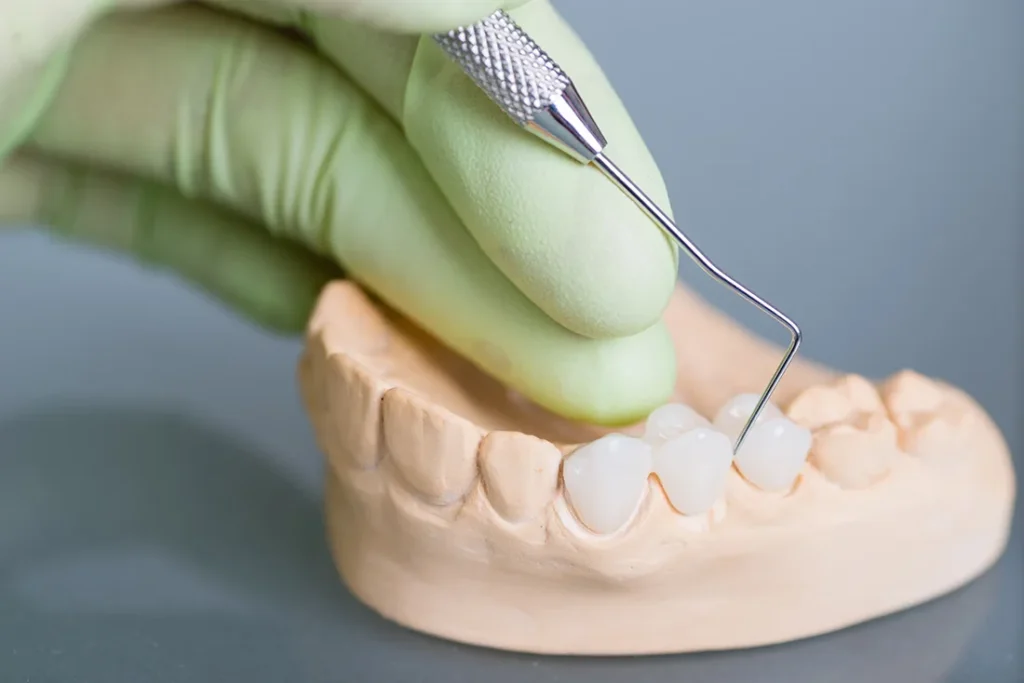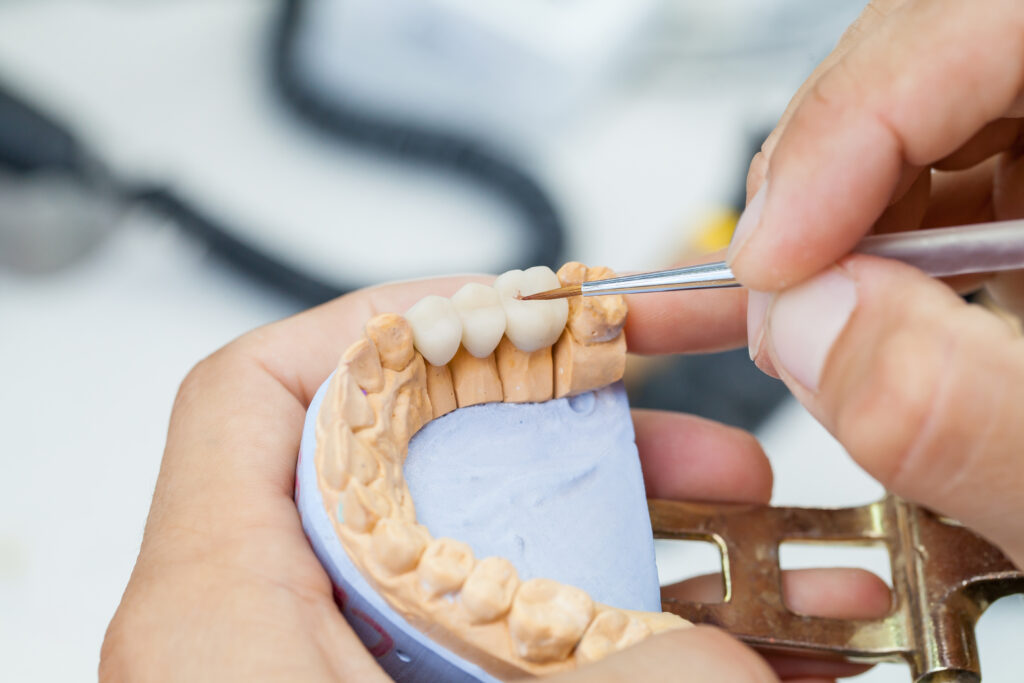
When you’re missing one or more teeth, the impact goes far beyond your smile’s appearance. Missing teeth impact your ability to chew properly, speak clearly, and maintain the structural integrity of your remaining teeth. Dental bridges offer a time-tested solution that literally bridges the hole left by missing teeth, restoring function and confidence to your daily life.
At Naylor Family Dental and Implant Center, we know that choosing the right tooth replacement option is an important decision. Our team, led by Dr. Brian Naylor, provides personalized care and high-quality ceramic bridges designed to blend seamlessly with your surrounding teeth while delivering lasting results you can trust. Before exploring your options, it’s helpful to understand how restorative dentistry can transform your oral health and quality of life.
A bridge is made up of one or more artificial teeth that are anchored in place by crowns set on the teeth adjacent to the gap. This creates a stable, permanent solution that fills the space left by missing teeth. The bridge essentially “bridges” the gap, hence the name.
Ceramic bridges represent the gold standard in tooth replacement technology. Unlike older metal-based options, ceramic bridges are crafted from high-quality porcelain materials that closely mimic the appearance, texture, and translucency of natural tooth enamel. This means your bridge will blend so seamlessly with your existing teeth that most people won’t even notice you have one.
The process typically involves two appointments. During your first visit, we prepare the anchor teeth and take detailed impressions. While your custom bridge is being crafted, we’ll provide you with a temporary bridge to protect your teeth and maintain your smile. At your second appointment, we’ll place and adjust your permanent bridge, ensuring a perfect fit and comfortable bite.

The following are the most common types of bridges we offer:
Traditional bridges are the most common type and work best when you have healthy teeth on both sides of the missing tooth or teeth. These bridges rely on crowns placed over the adjacent teeth to support the replacement tooth in the middle. With proper care, traditional bridges can last 10 to 15 years or even longer.
When you only have teeth on one side of the missing tooth, a cantilever bridge may be the right solution. While less common than traditional bridges, cantilever bridges are an excellent option in specific situations, particularly for replacing teeth in areas of your mouth that don’t experience heavy chewing forces.
Also known as resin-bonded bridges, they utilize a metal or porcelain framework that’s bonded to the back of adjacent teeth. This option requires minimal alteration to the supporting teeth, making it a more conservative choice for certain patients.
Ceramic bridges offer numerous advantages that make them an attractive option for tooth replacement. The most apparent benefit is the natural appearance. Dental crowns and bridges made from ceramic materials are color-matched to your existing teeth, creating a uniform, beautiful smile.
Beyond aesthetics, ceramic bridges restore full chewing function, letting you enjoy all your favorite foods again. They also help keep the shape of your face by supporting your facial muscles and preventing teeth from moving out of position.
Unlike removable dentures, bridges are permanently fixed in place, eliminating concerns about slipping or clicking sounds when you speak or eat. This stability also means you can maintain your normal oral hygiene routine with just a few modifications.
The biocompatibility of ceramic materials means they’re well-tolerated by your gum tissues, reducing the risk of irritation or allergic reactions. Additionally, ceramic doesn’t conduct heat like metal, so you won’t experience sensitivity to hot or cold foods and beverages.
Maintaining your ceramic bridge requires a commitment to excellent oral hygiene, but the routine isn’t dramatically different from caring for natural teeth. Regular brushing twice daily and flossing remain essential, though you’ll need to use certain floss threaders or water flossers to clean under the bridge where it connects to your gums.
The success of your bridge depends largely on the health of the supporting teeth. This makes regular dental checkups and cleanings even more important. During these visits, we’ll examine your bridge, check the supporting teeth, and professionally clean areas that may be difficult to reach at home.
Most patients find that avoiding extremely hard or sticky foods helps protect their bridge from damage. While ceramic bridges are quite durable, they can still chip or crack under excessive force, just like natural teeth.
With good care and maintenance, ceramic bridges provide many years of reliable service. Dental implants may offer certain advantages in some situations, but bridges remain an excellent choice for many patients, particularly when the adjacent teeth would benefit from crowns anyway.
At Naylor Family Dental and Implant Center, we’re committed to providing you with the highest quality restorative care in a welcoming, comfortable environment. Dr. Naylor brings years of experience and advanced training from Indiana University to every procedure, ensuring you get personalized treatment tailored to your unique needs and goals. We treat each patient with the same care and attention we would give to our own family members.
We understand that dental treatment represents both a financial and personal investment, which is why we offer financing options through CareCredit, Proceed Finance, and Cherry to make your care more accessible. We also accept most major insurance plans, including Delta Dental PPO, Cigna Dental, and Aetna Dental, and we help you maximize your benefits. Don’t let missing teeth continue to impact your confidence and quality of life. Call us today at (702) 395-0366 to schedule your appointment, or contact us online to learn how ceramic bridges can restore your smile.
Dental bridges can be used to replace up to 3 consecutive missing teeth.